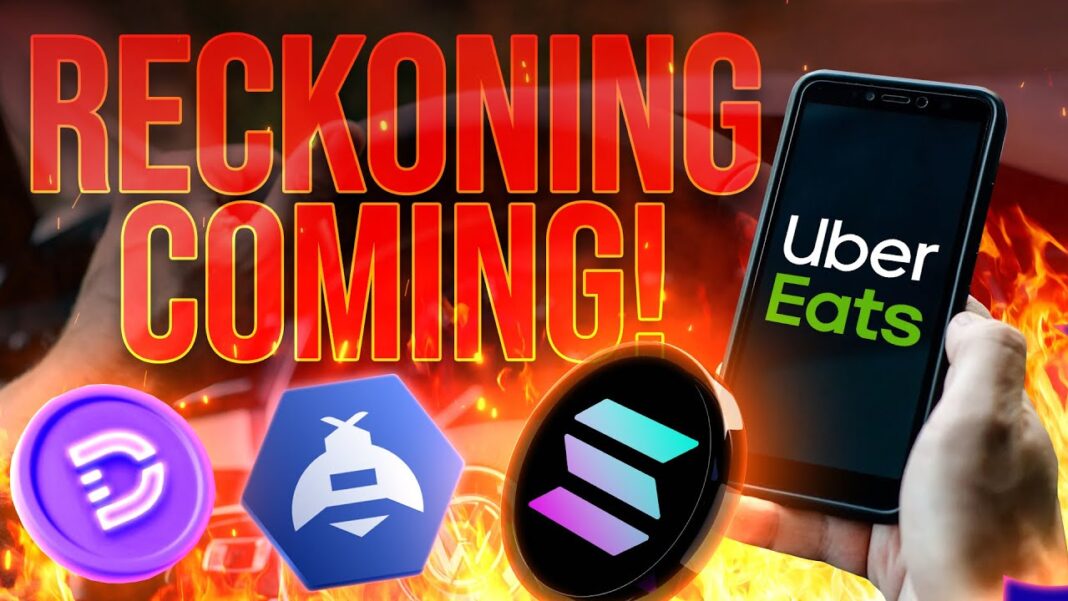Uber’s Reckoning Coming To Solana Ecosystem🔥Decentralized Rideshare Benefits
Hey there, fellow crypto enthusiasts! Today, I’ve got some exciting news to share with you about the convergence of decentralized finance (DeFi) and the sharing economy. We’re talking about Uber’s reckoning and the emergence of decentralized ridesharing platforms on the Solana ecosystem. So, fasten your seatbelts and let’s explore the potential benefits of decentralized ridesharing!
The Rise of Decentralized Ridesharing
As traditional ridesharing companies like Uber and Lyft face increasing scrutiny and regulatory challenges, decentralized ridesharing platforms powered by blockchain technology are gaining traction as viable alternatives. These platforms leverage the principles of decentralization, transparency, and peer-to-peer interactions to offer a more efficient, cost-effective, and user-centric ridesharing experience.
Uber’s Reckoning: Challenges and Controversies
Uber, once hailed as a disruptive force in the transportation industry, has faced its fair share of challenges and controversies in recent years. From regulatory battles and labor disputes to concerns over safety and corporate governance, Uber’s centralized business model has come under scrutiny from lawmakers, regulators, and consumers alike. As a result, many users are seeking alternative ridesharing solutions that prioritize decentralization, transparency, and community ownership.
Decentralized Ridesharing on Solana: The Benefits
Enter decentralized ridesharing platforms built on the Solana blockchain – a high-performance, scalable, and low-cost blockchain platform that offers the ideal infrastructure for decentralized applications (dApps) and services. Here are some of the potential benefits of decentralized ridesharing on Solana:
1. Decentralization
Decentralized ridesharing platforms on Solana operate on a peer-to-peer network, removing the need for intermediaries like centralized corporations. This decentralized approach empowers drivers and passengers by giving them more control over their transactions, earnings, and personal data.
2. Transparency
Blockchain technology provides a transparent and immutable record of transactions, ensuring that all ridesharing transactions are recorded and accessible to all parties involved. This transparency helps build trust between drivers and passengers, reducing disputes and enhancing the overall ridesharing experience.
3. Lower Costs
Decentralized ridesharing platforms on Solana can significantly reduce costs by eliminating the fees and commissions charged by traditional ridesharing companies. By leveraging blockchain technology and smart contracts, these platforms can facilitate direct peer-to-peer transactions, allowing drivers to earn more and passengers to pay less for rides.
4. Community Ownership
One of the most significant benefits of decentralized ridesharing on Solana is community ownership. Instead of being controlled by a centralized corporation, decentralized ridesharing platforms are owned and governed by their users, who collectively make decisions about the platform’s operation, development, and policies.
The Future of Decentralized Ridesharing
As decentralized ridesharing platforms continue to gain momentum on the Solana ecosystem, the future of ridesharing looks brighter than ever. With decentralized, transparent, and community-owned platforms, users can enjoy a more equitable, efficient, and empowering ridesharing experience. Whether you’re a driver looking to earn more, a passenger seeking lower fares, or a believer in the power of decentralization, decentralized ridesharing on Solana offers something for everyone.
Conclusion
In conclusion, Uber’s reckoning has paved the way for the rise of decentralized ridesharing platforms on the Solana ecosystem. By leveraging blockchain technology, transparency, and community ownership, these platforms offer a compelling alternative to traditional ridesharing companies. As we embrace the future of decentralized ridesharing, let’s ride together towards a more decentralized, transparent, and equitable transportation system.
Stay tuned for more updates and insights on the intersection of blockchain technology and the sharing economy!





